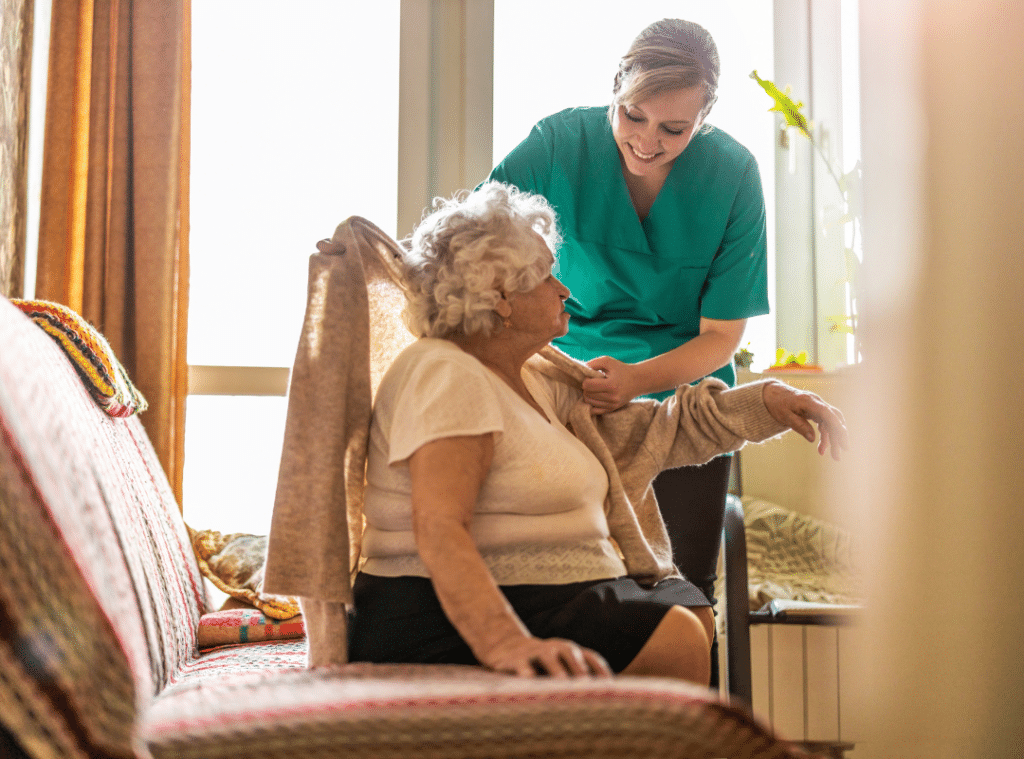The Importance of Mental Health Services for Seniors
Isn’t it alarming how often mental health is overlooked in seniors? As you consider the unique challenges they face, from loneliness to grief, the need for specialized mental health services becomes evident. At Westmont of Riverside, we recognize that these resources address pressing issues and create opportunities for connection and support. By examining the various options available, like in-home counseling or telehealth, you may find that enhancing the well-being of older adults is more attainable than it seems. What might the impact be if we prioritized these essential services for our aging population?
Mental Health Services for Seniors
Seniors’ mental health is an essential aspect of overall well-being, yet many older adults face unique challenges that can impact their emotional and psychological state. Access to mental health services specifically designed for seniors is essential. These services can address issues like loneliness, grief, and anxiety, offering tailored support that respects their life experiences and needs.
You might consider connecting older adults with resources such as the Administration on Aging, which provides valuable information on mental health and substance abuse. Local treatment facilities can be found through the Behavioral Health Treatment Services Locator, ensuring seniors receive the care they deserve. Programs like the National Council on Aging also offer essential services and resources to support their mental health. Encouraging seniors to engage in community-based initiatives can foster social connections, which are critical for emotional well-being.
Additionally, promoting telehealth options allows easy access to mental health professionals from the comfort of home, especially for those with mobility challenges. A supportive community that encourages social interaction can significantly enhance seniors’ mental well-being and help combat feelings of isolation. By advocating for these services, you can create a supportive environment that empowers older adults to prioritize their mental health and live fulfilling lives.
Mental Illness in Elderly
As individuals age, the risk of mental illness can increase due to various factors such as health issues, loss of loved ones, and social isolation. You might notice signs of depression or anxiety manifesting in the elderly, affecting their overall well-being. Understanding these challenges is fundamental for providing support.
Consider the following aspects of mental illness in seniors:
- Chronic pain that can lead to feelings of hopelessness
- Memory loss that may evoke frustration and sadness
- Isolation from family and friends amplifies loneliness
- Changes in mobility that restrict social interactions
- The grief from losing family members or friends
Recognizing these factors can help you offer empathetic support. It’s essential to approach conversations about mental health with sensitivity, understanding that elderly individuals may feel vulnerable discussing their struggles. Depression and memory loss can be particularly concerning, as addressing mental health issues is essential for improving cognitive function.
Encourage open dialogue and help them access professional resources when needed. Remember, fostering emotional well-being in seniors not only enhances their quality of life but also strengthens the bond you share with them. Your compassionate involvement can make a significant difference.

In-home mental health services for the elderly
In-home mental health services can be a lifeline for elderly individuals seeking support in a familiar and comfortable environment. These services offer personalized care tailored to the unique needs of seniors, allowing them to maintain their dignity and independence. By bringing mental health professionals into their homes, you can help them receive essential support without the stress of traveling. Additionally, engaging in social connections and engagement can significantly enhance the effectiveness of these services by fostering a sense of belonging.
| Service Type | Benefits | Providers |
| Counseling | Emotional support and therapy | Licensed therapists |
| Medication Management | Safe, effective medication use | Psychiatrists |
| Crisis Intervention | Immediate support during crises | Crisis counselors |
| Group Therapy | Connection with peers, reducing isolation | Group facilitators |
In-home mental health services foster a sense of community and understanding, which is essential for combating feelings of loneliness. They also provide caregivers with resources and strategies, ensuring better overall mental health for both seniors and their families. By prioritizing these services, you can contribute to a more compassionate, supportive environment for our elders, helping them navigate their mental health challenges with grace and dignity.
In summary, prioritizing mental health services for seniors is as vital as a sturdy lifeline in choppy waters. At Westmont of Riverside, we believe that by providing tailored support, whether through in-home counseling or telehealth options, we can help older adults navigate their unique challenges. These services not only address their mental health needs but also foster connections that combat loneliness. Let’s commit to empowering our seniors, ensuring they lead healthier, happier lives filled with purpose and joy. They deserve nothing less. For more information, please contact us at 951-697-2100.
How Do The Costs Of Moving Into A Quality Senior Care Community Compare With The Costs Of Staying At Home?Compare The Costs of Senior Living vs Staying at Home
FAQs on Elderly Support and Mental Health
- What is the most requested support service for the elderly?
The most requested support service for the elderly is in-home care. This includes assistance with daily activities such as bathing, meal preparation, medication management, and companionship to help seniors maintain independence while receiving necessary care. - What is the most common mental health problem for older adults?
Depression is the most common mental health issue among older adults. It often goes undiagnosed because symptoms can overlap with other health conditions, but it significantly impacts quality of life if left untreated. - How to improve mental health in the elderly?
Mental health in the elderly can be improved by promoting social engagement, encouraging physical activity, and providing access to counseling or therapy. Creating a routine, fostering connections with family and friends, and participating in hobbies can also enhance emotional well-being.








